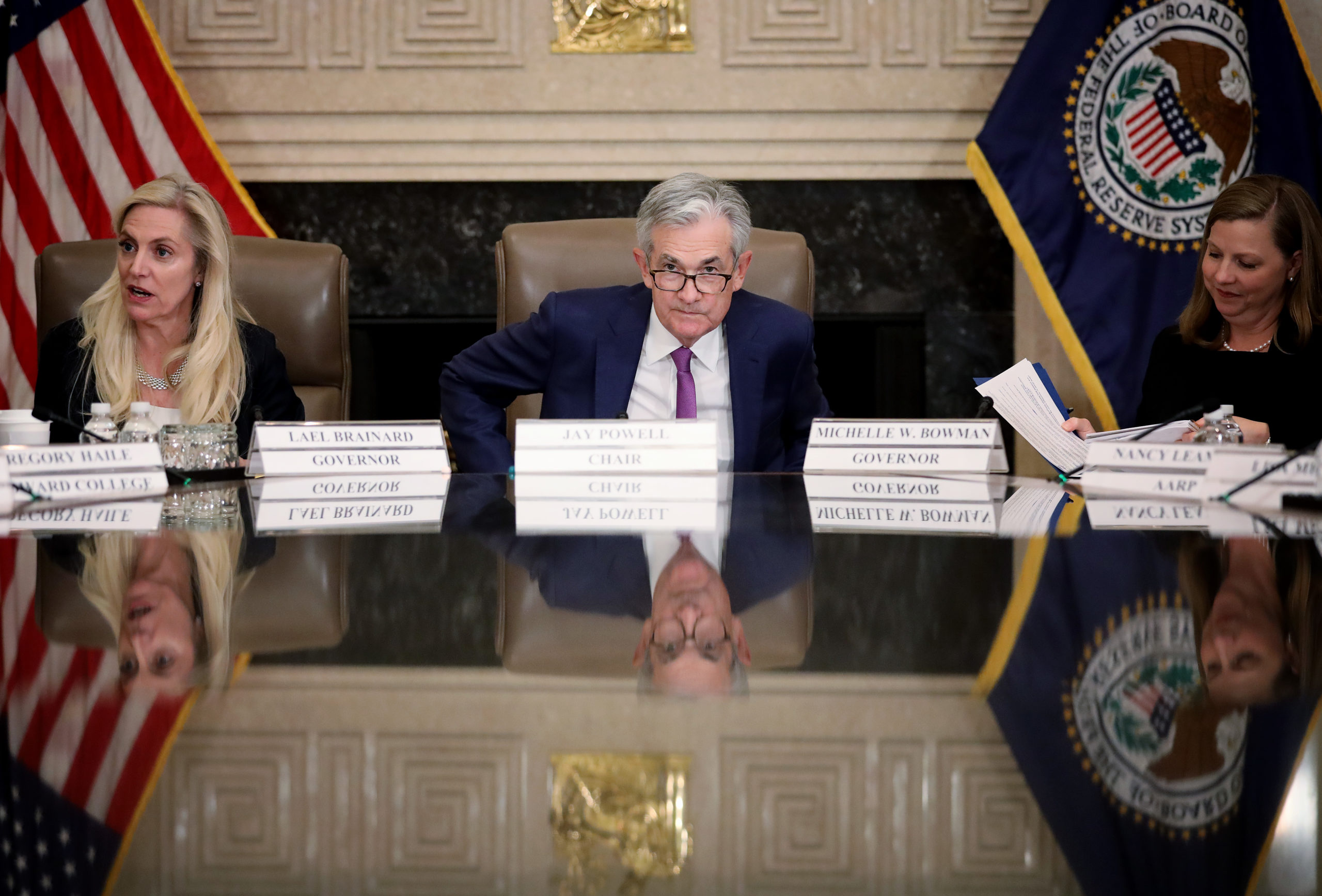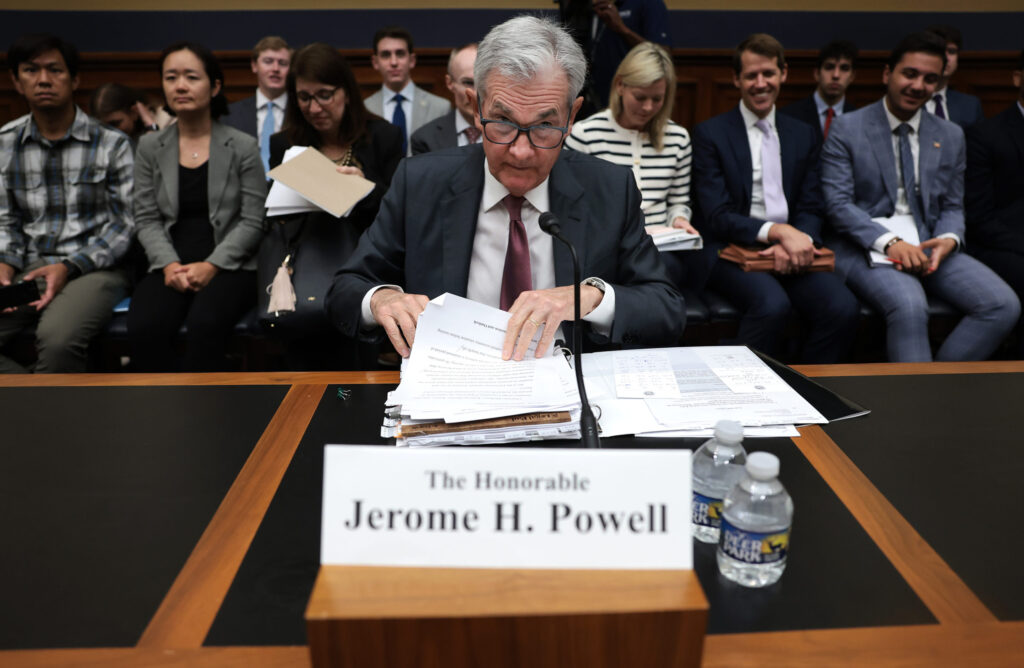The Federal Reserve excluded one key line from its Wednesday interest rate decision announcement, indicating possible trouble in the ailing banking sector that could spread to the wider economy.
The Federal Open Market Committee released a statement at the conclusion of its January meeting regarding the health of the economy, as well as a decision to keep the federal funds rate in a range of 5.25% and 5.50%. The statement excluded a phrase that had been present in previous months that reads, “The U.S. banking system is sound and resilient,” indicating that a troubled American banking sector could weigh on the future economy. (RELATED: Job Cuts Soar As Employers Look For Ways To Lower Costs)
The American banking sector has recently been under close watch by federal regulators after depositors at Silicon Valley Bank (SVB) triggered a bank run in March 2023, resulting in its eventual collapse and emergency acquisition by the Federal Deposit Insurance Corporation (FDIC). SVB’s collapse frightened other depositors at regional banks, leading Signature and First Republic to also fail, with the latter being acquired by the FDIC and sold to megabank JPMorgan Chase.
“The U.S. banking system is sound and resilient” removed from the Fed statement…
Is the banking system no longer sound and resilient? Or was it only in there as a lie to calm people during bank failures? @federalreserve pic.twitter.com/gGVJeR6JRe
— Geiger Capital (@Geiger_Capital) January 31, 2024
The FDIC traditionally only insures deposits over $250,000 for banks, but federal regulators chose to extend insurance at banks whose failures are designated as a systemic risk.
WASHINGTON, DC – JUNE 21: Federal Reserve Chairman Jerome Powell testifies before the House Committee on Financial Services June 21, 2023 in Washington, DC. Powell testified on the Federal Reserve’s Semi-Annual Monetary Policy Report during the hearing. (Photo by Win McNamee/Getty Images)
Smaller community banks are suffering the most in the current system compared to top megabanks, like JPMorgan, due to smaller institutions’ inability to absorb the increased costs associated with higher interest rates. Depositors have also become less willing to put their money into smaller banks due to the perceived risks of bank failures resulting from the sector crisis last year, leading to increased business for big banks.

WASHINGTON, DC – MAY 31: U.S. President Joe Biden (C) meets with Federal Reserve Chairman Jerome Powell and Treasury Secretary Janet Yellen, in the Oval Office at the White House on May 31, 2022 in Washington, DC. The three met to discuss the Biden Administration’s plan to combat record-high inflation. (Photo by Kevin Dietsch/Getty Images)

WASHINGTON, DC – OCTOBER 04: Federal Reserve Board Chairman Jerome Powell attends an event at the Federal Reserve headquarters October 4, 2019 in Washington, DC. Powell participated in a “Fed Listens” event on “Perspectives on Maximum Employment and Price Stability.” (Photo by Win McNamee/Getty Images)
Net income at small institutions was down substantially in the fourth quarter as a result of an exodus by depositors from smaller banks to larger institutions. On the other hand, the top four U.S. banks — JPMorgan, Bank of America, Wells Fargo and Citigroup — saw their earnings rise 11% during 2023 to over $100 billion.
Smaller banks also provide a unique hold on commercial real estate loans, with banks outside of the top 25 in terms of assets holding around 67.2% of loans in commercial real estate, but only 37.6% of all loans. Commercial real estate is currently in the midst of a debt crisis due largely to an increase in interest rates and a fall in demand, creating risks for the banks they owe.
The Federal Reserve declined to comment to the Daily Caller News Foundation.
All content created by the Daily Caller News Foundation, an independent and nonpartisan newswire service, is available without charge to any legitimate news publisher that can provide a large audience. All republished articles must include our logo, our reporter’s byline and their DCNF affiliation. For any questions about our guidelines or partnering with us, please contact licensing@dailycallernewsfoundation.org.


